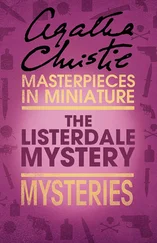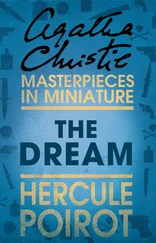Agatha Christie - The Labours of Hercules
Здесь есть возможность читать онлайн «Agatha Christie - The Labours of Hercules» весь текст электронной книги совершенно бесплатно (целиком полную версию без сокращений). В некоторых случаях можно слушать аудио, скачать через торрент в формате fb2 и присутствует краткое содержание. Жанр: Классический детектив, на английском языке. Описание произведения, (предисловие) а так же отзывы посетителей доступны на портале библиотеки ЛибКат.
- Название:The Labours of Hercules
- Автор:
- Жанр:
- Год:неизвестен
- ISBN:нет данных
- Рейтинг книги:4.33 / 5. Голосов: 3
-
Избранное:Добавить в избранное
- Отзывы:
-
Ваша оценка:
- 80
- 1
- 2
- 3
- 4
- 5
The Labours of Hercules: краткое содержание, описание и аннотация
Предлагаем к чтению аннотацию, описание, краткое содержание или предисловие (зависит от того, что написал сам автор книги «The Labours of Hercules»). Если вы не нашли необходимую информацию о книге — напишите в комментариях, мы постараемся отыскать её.
The Labours of Hercules — читать онлайн бесплатно полную книгу (весь текст) целиком
Ниже представлен текст книги, разбитый по страницам. Система сохранения места последней прочитанной страницы, позволяет с удобством читать онлайн бесплатно книгу «The Labours of Hercules», без необходимости каждый раз заново искать на чём Вы остановились. Поставьте закладку, и сможете в любой момент перейти на страницу, на которой закончили чтение.
Интервал:
Закладка:
Harold had a sensation of the world spinning round him.
He said faintly: "But the man – the man who was killed?"
"No one was killed. There was no man!"
"But I saw him!"
"Oh no. The tall deep-voiced Mrs Rice is a very successful male impersonator. It was she who played the part of the husband – without her grey wig and suitably made up for the part."
He leaned forward and tapped the other on the knee.
"You must not go through life being too credulous, my friend. The police of a country are not so easily bribed – they are probably not to be bribed at all – certainly not when it is a question of murder! These women trade on the average Englishman's ignorance of foreign languages. Because she speaks French or German, it is always this Mrs Rice who interviews the manager and takes charge of the affair. The police arrive and go to her room, yes! But what actually passes? You do not know. Perhaps she says she has lost a brooch – something of that kind. Any excuse to arrange for the police to come so that you shall see them. For the rest, what actually happens? You wire for money, a lot of money, and you hand it over to Mrs Rice who is in charge of all the negotiations! And that is that! But they are greedy, these birds of prey. They have seen that you have taken an unreasonable aversion to these two unfortunate Polish ladies. The ladies in question come and hold a perfectly innocent conversation with Mrs Rice and she cannot resist repeating the game. She knows you cannot understand what is being said.
"So you will have to send for more money which Mrs Rice will pretend to distribute to a fresh set of people."
Harold drew a deep breath. He said: "And Elsie – Elsie?"
Hercule Poirot averted his eyes.
"She played her part very well. She always does. A most accomplished little actress. Everything is very pure – very innocent. She appeals, not to sex, but to chivalry."
Hercule Poirot added dreamily: "That is always successful with Englishmen."
Harold Waring drew a deep breath. He said crisply: "I'm going to set to work and learn every European language there is! Nobody's going to make a fool of me a second time!"
Chapter 7
THE CRETAN BULL
I
Hercule Poirot looked thoughtfully at his visitor.
He saw a pale face with a determined-looking chin, eyes that were more grey than blue, and hair that was of that real blue-black shade so seldom seen – the hyacinthine locks of ancient Greece.
He noted the well-cut, but also well-worn, country tweeds, the shabby handbag, and the unconscious arrogance of manner that lay behind the girl's obvious nervousness. He thought to himself: "Ah yes, she is 'the County' – but no money! And it must be something quite out of the way that would bring her to me."
Diana Maberly said, and her voice shook a little: "I – I don't know whether you can help me or not, M. Poirot. It's – it's a very extraordinary position."
Poirot said: "But yes? Tell me?"
Diana Maberly said: "I've come to you because I don't know what to do! I don't even know if there is anything to do!"
"Will you let me be the judge of that?"
The colour surged suddenly into the girl's face.
She said rapidly and breathlessly: "I've come to you because the man I've been engaged to for over a year has broken off our engagement."
She stopped and eyed him defiantly.
"You must think," she said, "that I'm completely mental."
Slowly, Hercule Poirot shook his head.
"On the contrary. Mademoiselle, I have no doubt whatever but that you are extremely intelligent. It is certainly not my metier in life to patch up the lovers' quarrels, and I know very well that you are quite aware of that. It is, therefore, that there is something unusual about the breaking of this engagement. That is so, is it not?"
The girl nodded. She said in a clear, precise voice. "Hugh broke off our engagement because he thinks he is going mad. He thinks people who are mad should not marry."
Hercule Poirot's eyebrows rose a little.
"And do you not agree?"
"I don't know… What is being mad, after all? Everyone is a little mad."
"It has been said so," Poirot agreed cautiously.
"It's only when you begin thinking you're a poached egg or something that they have to shut you up."
"And your fiancé has not reached that stage?"
Diana Maberly said: "I can't see that there's anything wrong with Hugh at all. He's, oh, he's the sanest person I know. Sound – dependable -"
"Then why does he think he is going mad?"
Poirot paused a moment before going on.
"Is there, perhaps, madness in his family?"
Reluctantly Diana jerked her head in assent.
She said: "His grandfather was mental, I believe – and some great-aunt or other. But what I say is, that every family has got someone queer in it. You know, a bit half-witted or extra clever or something!"
Her eyes were appealing.
Hercule Poirot shook his head sadly.
He said: "I am very sorry for you. Mademoiselle."
Her chin shot out. She cried: "I don't want you to be sorry for me! I want you to do something!"
"What do you want me to do?"
"I don't know – but there's something wrong."
"Will you tell me Mademoiselle, all about your fiancé?"
Diana spoke rapidly: "His name's Hugh Chandler. He's twenty-four. His father is Admiral Chandler. They live at Lyde Manor. It's been in the Chandler family since the time of Elizabeth. Hugh's the only son. He went into the Navy – all the Chandlers are sailors – it's a sort of tradition – ever since Sir Gilbert Chandler sailed with Sir Walter Raleigh in fifteen-something-or-other. Hugh went into the Navy as a matter of course. His father wouldn't have heard of anything else. And yet – and yet, it was his father who insisted on getting him out of it!"
"When was that?"
"Nearly a year ago. Quite suddenly."
"Was Hugh Chandler happy in his profession?"
"Absolutely."
"There was no scandal of any kind?"
"About Hugh? Absolutely nothing. He was getting on splendidly. He – he couldn't understand his father."
"What reason did Admiral Chandler himself give?"
Diana said slowly: "He never really gave a reason. Oh! he said it was necessary Hugh should learn to manage the estate – but – but that was only a pretext. Even George Frobisher realised that."
"Who is George Frobisher?"
"Colonel Frobisher. He's Admiral Chandler's oldest friend and Hugh's godfather. He spends most of his time down at the Manor."
"And what did Colonel Frobisher think of Admiral Chandler's determination that his son should leave the Navy?"
"He was dumbfounded. He couldn't understand it at all. Nobody could."
"Not even Hugh Chandler himself?"
Diana did not answer at once.
Poirot waited a minute, then he went on: "At the time, perhaps, he, too, was astonished. But now? Has he said nothing – nothing at all?"
Diana murmured reluctantly: "He said – about a week ago – that – that his father was right – that it was the only thing to be done."
"Did you ask him why?"
"Of course. But he wouldn't tell me."
Hercule Poirot reflected for a minute or two. Then he said: "Have there been any unusual occurrences in your part of the world? Starting, perhaps, about a year ago? Something that has given rise to a lot of local talk and surmise?"
She flashed out: "I don't know what you mean!"
Poirot said quietly, but with authority in his voice: "You had better tell me."
"There wasn't anything – nothing of the kind you mean."
"Of what kind then?"
"I think you're simply odious! Queer things often happen on farms. It's revenge – or the village idiot or somebody."
"What happened?"
She said reluctantly: "There was a fuss about some sheep… Their throats were cut. Oh! it was horrid! But they all belonged to one farmer and he's a very hard man. The police thought it was some kind of spite against him."
Читать дальшеИнтервал:
Закладка:
Похожие книги на «The Labours of Hercules»
Представляем Вашему вниманию похожие книги на «The Labours of Hercules» списком для выбора. Мы отобрали схожую по названию и смыслу литературу в надежде предоставить читателям больше вариантов отыскать новые, интересные, ещё непрочитанные произведения.
Обсуждение, отзывы о книге «The Labours of Hercules» и просто собственные мнения читателей. Оставьте ваши комментарии, напишите, что Вы думаете о произведении, его смысле или главных героях. Укажите что конкретно понравилось, а что нет, и почему Вы так считаете.












